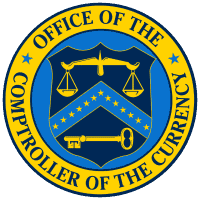CEI Comments: Volcker Rule Has Failed to Make Financial System More Stable

 CEI submitted comments on the Office of the Comptroller of the Currency’s (OCC) proposed revision to the Volcker Rule, a federal regulation that bans commercial banks from engaging in proprietary trading and limits their relationships with hedge funds and private equity funds. While it is our belief that Congress should repeal the Volcker Rule in its entirety, in the meantime, we applaud the OCC’s intention to revise the rule. In particular, we address four sections where the regulation fails to achieve its intended aims:
CEI submitted comments on the Office of the Comptroller of the Currency’s (OCC) proposed revision to the Volcker Rule, a federal regulation that bans commercial banks from engaging in proprietary trading and limits their relationships with hedge funds and private equity funds. While it is our belief that Congress should repeal the Volcker Rule in its entirety, in the meantime, we applaud the OCC’s intention to revise the rule. In particular, we address four sections where the regulation fails to achieve its intended aims:
- The Volcker Rule was developed in response to the risky trading activities of the largest commercial banks on Wall Street. Paul Volcker, after whom the rule is named, noted that he thought the rule would only impact the four or five largest banks. The final rule, however, has grown to cover all institutions, big and small. Yet small and medium-sized banks are neither systemic threats nor excessively risky in their trading activities. Broadly applying a rule to Main Street that was intended to tackle the activities of Wall Street is unwarranted, and has only added another layer of compliance paperwork to an already struggling community and regional bank sector.
- The Volcker Rule’s enforcement has also been problematic. The rule challenges all banks to justify their trading under a presumption of guilt, treating any proprietary activity as prohibited unless it fits into narrow exceptions. Because the rule’s definition is so muddled, there is an inevitable reliance upon regulators to make arbitrary decisions regarding what is and what is not permitted. This may not pose an issue for trillion-dollar banks with armies of lawyers, but smaller banks cannot run the risk of making legitimate, legal trades if it will bring more regulatory scrutiny and possible litigation. As a result, smaller banks have had to reduce their otherwise legal risk management strategies.
- There is also little evidence to suggest that the Volcker Rule has reduced systemic risk. The type of activities prohibited do not involve excessive risk, as it claims, and banks have only marginally reduced their trading risks since the rule was implemented. Even so, while banks may have reduced risk in their trading books, they have shifted their risk-taking to other areas. This has prevented diversification, concentrated risk in other activities and industries, such as hedge funds, and increased the likelihood of large banks manipulating the rule.
- Lastly, the Volcker Rule completely fails to address the fundamental cause of banks’ excessive risk taking—the moral hazard engendered through federal deposit insurance. Instead of addressing this, it relies on ever more intervention to work around the fundamental issue. A better approach would entail making institutions more responsible for the risks they take, instead of trying to centrally control them.
Accordingly, we propose three actions that the relevant regulatory agencies can take to improve the Volcker Rule:
- Tailor the rule to the largest banks with significant proprietary trading;
- Simplify the definition of prohibited activities, clearly outlining what is prohibited; and
- Study the moral hazard effects of federal deposit insurance on bank’s risk-taking, particularly trading activities.
Full comments available here.
For further reading: